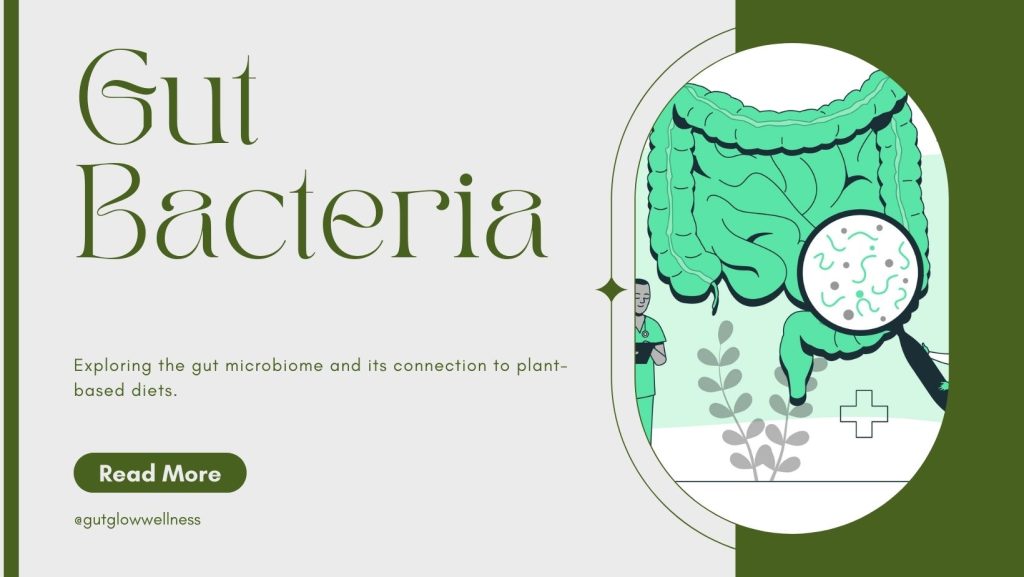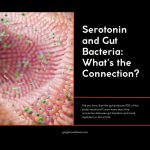
Is your gut feeling a little off? Maybe it’s time to explore the power of plant-based gut health. Packed with fiber, prebiotics, and beneficial nutrients, a plant-based diet can be a game-changer for your digestive system. But how exactly does going green benefit your gut? Let’s delve into the science and unveil the secrets of plant-based gut health.
The Microbiome Magic:
Your gut is home to trillions of tiny bacteria, collectively known as the gut microbiome. These microscopic residents play a vital role in digestion, immunity, and overall health. Research suggests that a plant-based diet can positively impact the diversity and composition of your gut microbiome, promoting the growth of beneficial bacteria and potentially reducing the presence of harmful ones. This shift in the microbiome landscape can lead to a range of plant-based gut health benefits, including:

- Improved Digestion: Fiber, abundant in plant-based foods, acts as food for your gut bacteria, aiding in smooth digestion and reducing constipation.
- Reduced Inflammation: Plant-based diets are naturally lower in inflammatory compounds and rich in antioxidants, which can help combat chronic inflammation linked to gut issues.

- Enhanced Immunity: A healthy gut microbiome is crucial for a strong immune system. Plant-based foods provide essential nutrients that support immune function, potentially reducing your susceptibility to infections.
- Boosted Mood: The gut-brain connection is real! Studies suggest that a diverse gut microbiome can positively impact mood and mental well-being.

Beyond Fiber:
While fiber is a key player in plant-based gut health, remember it’s just one piece of the puzzle. Explore the diverse range of gut-friendly plant-based foods:

- Fruits and Vegetables: Packed with fiber, prebiotics, and vitamins, they feed your gut bacteria and support overall health.
- Legumes: Rich in protein, fiber, and prebiotics, these powerhouses can aid digestion and keep you feeling full.
- Fermented Foods: From kimchi to sauerkraut, these delicious options are teeming with beneficial live bacteria that contribute to a healthy gut microbiome.
- Whole Grains: Opt for whole-wheat bread, brown rice, and quinoa for sustained energy and fiber intake, nourishing your gut bacteria.

Remember: Going plant-based isn’t an overnight switch. Start by incorporating more fruits, vegetables, and whole grains into your diet, gradually reducing your intake of animal products. Listen to your body, consult a healthcare professional if needed, and enjoy the journey towards a happy and healthy gut!
Frequently Asked Questions:
What’s gut health?

Gut health refers to the overall health of your digestive system, which includes your stomach, small and large intestines, and colon. A healthy gut is essential for proper digestion, absorption of nutrients, and elimination of waste. It also plays a critical role in your immune system and overall well-being. Poor gut health can lead to various digestive problems such as bloating, constipation, diarrhea, and even more serious conditions like inflammatory bowel disease and colon cancer.
Which gut bacteria cause weight loss?

There is no single gut bacteria that can cause weight loss. In fact, a diverse and balanced gut microbiome is generally associated with good overall health and a healthy body weight. However, some studies have suggested that certain strains of bacteria, such as Akkermansia muciniphila and Christensenellaceae, may be associated with a lower risk of obesity. Nevertheless, the relationship between gut bacteria and weight loss is complex and more research is needed to fully understand the role of the microbiome in weight management.
What gut health means?

Gut health refers to the overall health and function of the digestive system, including the stomach, small intestine, and large intestine. It involves the balance of bacteria and other microorganisms in the gut, the ability to digest and absorb nutrients from food, and the elimination of waste. Good gut health is important for overall health and well-being, and can be influenced by factors such as diet, stress, and medication use.
Which gut bacteria produce serotonin?

While there are many types of gut bacteria that can influence serotonin production, some of the key players include strains of Lactobacillus and Bifidobacterium. These bacteria help to produce and regulate serotonin, which is an important neurotransmitter that affects mood, appetite, and other bodily functions.
Which magnesium for gut health?

When it comes to choosing a magnesium supplement for gut health, magnesium oxide, magnesium citrate, and magnesium glycinate are some of the most commonly recommended forms. Magnesium oxide is the least expensive but can cause digestive irritability. Magnesium citrate is a more easily absorbed form and can help with constipation. Magnesium glycinate is highly absorbable and gentle on the stomach, making it a good choice for those with sensitive digestive systems. However, it’s always best to consult with your healthcare provider before starting any new supplement regimen.
Leave a Reply